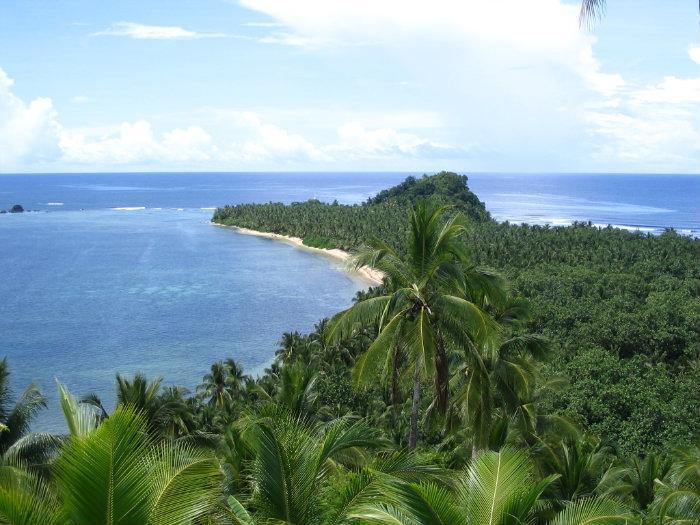The Plastic Crisis in the Philippines – Part 2

If you haven’t read the Part 1, here it is The Plastic Crisis in the Philippines Part 1
Ayuki Island
Although it may not be well known, Ayuki Island is a surfer’s paradise. It’s picture perfect with the sickest waves you’ll see in the Philippines. See-through water, no crowds and friendly locals.
It’s off the beaten track, a 30-minute boat ride from Lanuza wharf. The island is inhabited by 500 residents who use solar as their source of power.
Sound like a dream?
It could be! If only it weren’t for all the plastic rubbish strewn on the beaches.
As we reached the shore and I jumped off the small boat, I spied a beach covered with plastic. It made my heart sink. Paradise is being destroyed by humans; our plastic consumption and disposal is reaching all ends of the earth.
This is a remote island yet their beaches are choking with plastic, how can this be? There are two issues that Ayuki faces.
Firstly, plastic garbage floats in from the mainland and surrounding islands. I spoke to a local and she told me that the tides of plastic just keep coming. They do regular beach clean ups but the plastic comes quicker than what they can collect.
Secondly, the locals produce waste themselves and they have no way of disposing it. There is one small grocery shop on the island that sells, guess what, products in small sachets made of plastic.
The island doesn’t have a waste management system in place. So, the only way to get rid of it is to send it back to the main land or burn it? Whilst travelling through the Philippines, I was shocked to see the amount of rubbish that regularly gets burnt, even on the islands. You would walk past a pile of burning rubbish and all you could smell was burning plastic, the fumes choked me. But unfortunately, locals like those on Ayuki island don’t really have much of an alternative. And what they don’t realise is, that for every pile of rubbish burnt, a few kilos of dioxin end up in the atmosphere, ultimately contributing to climate change. What does that mean for a person living on a small island in the middle of the Pacific Ocean? It means that the sea level is going to rise and slowly creep up further and further until there is no island left. Ayuki island is only a few metres above sea level.
These small plastic sachets will be the downfall of the Philippines. Being a micro economy, a large portion of the population doesn’t have the disposable income available to buy products in big sizes, like the US or other first world countries. The majority of Filipinos buy products, from shampoo to coffee, in small plastic sachets. I’ve never seen anything like it. All produced by the biggest polluters in the world like Nestle, Colgate-Palmolive etc. Global brands that make billions of dollars every year that can’t be bothered to use those profits to make their products environmentally friendly. They are contributing to killing the ocean and the creatures in it.
But what Filipinos don’t realise is that they can demand change. Companies sell products that people buy. If people stopped buying these products then the large companies would be forced to sell more responsible products. Considering that the Philippines doesn’t recycle, the people need to stand up and demand change, asking for things like products packaged in compostable packaging.
The third biggest polluter of the ocean; what the Philippines doesn’t realise (or just don’t care about) is that they are going to be one of the nations that are most affected by climate change. A country made up of 7,000 + islands is going to suffer as the sea level rises; there are going to be many climate refugees who will have to flee their homes as the land disappears. A catastrophe not too far into the future.
I had an emotional stay in Ayuki. So happy that solar had been implemented as an alternative power source but so sad to see the amount of waste they were dealing with, it actually broke my heart.
Drastic action from government, industry and people needs to be taken now to save islands like Ayuki.
